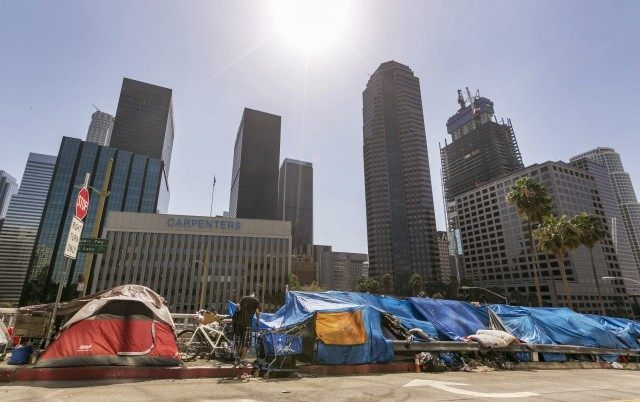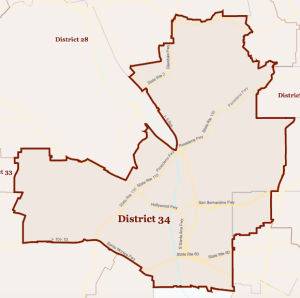Editor’s note: The presidential nominating contests in both parties will come down to the California primary.
For Democrats, 548 delegates are at stake — 11.5% of the total. For Republicans, 172 delegates are at stage — 6.9% of the total. Of those, for Democrats, 158 (29%) are divided proportionally on a statewide basis, while 317 (58%) are divided proportionally by congressional district, with each district providing between 5 and 8 delegates. The remaining 73 (13%) are “superdelegates.”
For Republicans, 13 (8%) are awarded statewide, with ten going to the candidate with the highest number of votes on a winner-take-all basis, and three going to “pre-determined” delegates (the State Chair, National Committeewoman, National Committeeman). Meanwhile, 159 (92%) are awarded by congressional district on a winner-take-all basis, with each district providing 3 delegates.
The result: a district-by-district battle in both parties, which we preview for you here.
CA-34: This district includes downtown Los Angeles and Skid Row, plus the ethnic neighborhoods to the west and some of the hipster/academic hangouts to the north. Moderate Democrat Xavier Becerra has a lock on the district, which has almost no hope of ever being won by a Republican. There are many young, liberal voters moving into the area in search of cheaper housing and an urban lifestyle; the majority of the district’s population remains Latino.
Prospects:
Democrats: The hipster math, plus the academic crowd and the union-dominated core favor Sanders over Clinton.
Sanders 3, Clinton 2
Republicans: Cruz have a presence, but Trump should win the district’s frustrated Republicans by a large margin.
Trump 3, Cruz 0, Kasich 0
Joel B. Pollak is Senior Editor-at-Large at Breitbart News. His new e-book, Leadership Secrets of the Kings and Prophets: What the Bible’s Struggles Teach Us About Today, is on sale through Amazon Kindle Direct. Follow him on Twitter at @joelpollak.


COMMENTS
Please let us know if you're having issues with commenting.